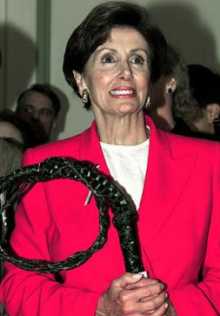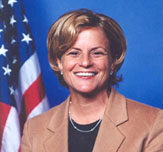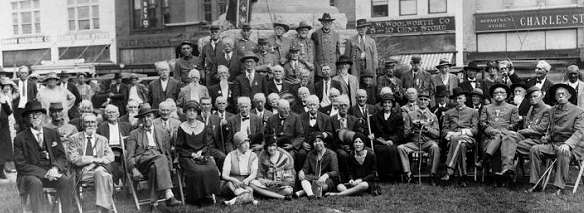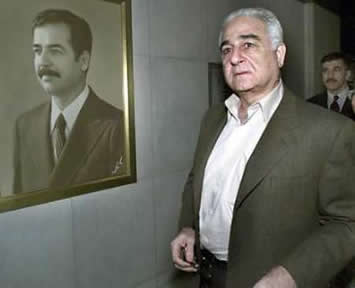By Tariq Fatemi
PAKISTANS diplomacy has historically been imbued with imagination and initiative. Recently, however, there was an occasion when our effort to engage in a salvage operation was stopped virtually in midstream.
Its origins go back to the July 2005 George Bush-Manmohan Singh joint statement that carried the US commitment to provide civilian nuclear technology to India. Bush had then stated that his administration would not only adjust US laws and policies, but also work with friends and allies to adjust international regimes to enable full nuclear energy cooperation and trade with India.
A year later, the US Congress passed the Henry Hyde US-India Peaceful Atomic Energy Act of 2006, which Bush signed into law on Dec 18, 2006. Thereafter on July 27, 2007, India and the US reached a consensus on the text of a nuclear cooperation agreement, prompting Bush to reiterate the US desire to base relations with India on a strategic vision that transcends even todays most pressing security concerns. However, for this agreement to be put into operation, India and the International Atomic Energy Agency (IAEA) needed to agree on a Safeguards Agreement.
This high-stake game moved recently to Vienna where the IAEA Board of Governors was hustled into approving, by consensus, the draft of the Safeguards Agreement that contained procedural errors as well as critical exceptions and concessions that other IAEA agreements did not contain.
For example, it does not, unlike accepted IAEA format, use the word in perpetuity with reference to the safeguards, which can only be taken as indicative of Indias desire to keep open the possibility of reneging on the agreement. It also has a provision that permits India to take corrective measures to ensure the uninterrupted operation of its civilian nuclear reactors in the event of disruption of foreign fuel supplies.
Since such a disruption can happen only if India resumes nuclear testing, this loophole will stop the IAEA from preventing the diversion of materials from civilian safeguarded reactors to military purposes. Nor does the agreement include a list of facilities to be safeguarded. Instead, India has been permitted to volunteer which of its facilities will be placed under safeguards and when. This has led some to describe it as an empty shell agreement.
Earlier, when US largesse to India had caused deep concern to American advocates of non-proliferation as well as our national security experts, the last government had chosen to adopt an attitude that revealed both ignorance and apathy.
Admittedly, our demand for a similar facility would have been brushed aside, given the bitter memories of Kargil and allegations of proliferation misdemeanours. Nevertheless, our refusal to immediately react to the Indo-US deal was deeply disappointing to most Pakistanis.
The restoration of a democratic government had renewed hopes that Pakistan would finally wake up to the grave implications of the Indo-US deal and initiate a vigorous diplomatic campaign on two tracks. One, bilaterally with Washington to press for a criteria-based approach, while seeking its assistance in harnessing alternative sources of energy. Two, by sensitising friendly capitals on this issue and seeking their support to delay, if not deny, passage of the Safeguards Agreement.
In mid-July, a half-hearted effort was finally launched by the Foreign Office, when our permanent representative in Vienna, wrote to the Board of Governors (BOG), as well as member states of the Nuclear Suppliers Group (NSG), pointing out the procedural errors as well as substantive concessions contained in the Safeguards Agreement.
By endorsing Indias refusal to place its breeder reactors and thorium-based programme under safeguards, the agreement recognises Indias three-phased nuclear programme, which amounts to gratuitous legitimisation of potential nuclear proliferation that was contrary to IAEA objectives.
The letter also stressed that the IAEA statute does not provide for differentiation between member states on the basis of political consideration, nor did it allow for special treatment for a particular state.
Calling it an India-specific agreement was therefore wrong but any safeguards agreement adopted by the BOG in respect of India should be available as a model for other non-NPT states. The foreign ministry also decided to send a special envoy to China, to obtain its support for our approach.
In response, the Bush administration launched its own campaign to dissuade Pakistan from any effort to thwart the Indo-US game plan. In doing so, it also claimed that the previous government had already given its commitment not to oppose the unprecedented concessions given to India.
Our ambassador in Washington, too, according to well-informed sources, pitched in, recommending that we do nothing to upset the Bush administrations advice and, instead, terminate all efforts to counter the Indo-US move, at both the IAEA and the NSG, which is to meet to consider the US draft to allow nuclear trade with India. To the Foreign Offices disappointment, the entire campaign was called off, causing deep dismay at this abject surrender of national interests.
The Indo-US nuclear deal should not be seen merely as a commercial arrangement. Thanks to this deal, India will obtain full access to nuclear technology, while the global ban on civil nuclear cooperation with Pakistan will remain intact. India will also stand admitted to the exclusive club of nuclear weapon states, while Pakistans nuclear programme will continue to draw international concern and opprobrium.
Moreover, the manner in which the deal was concluded is reflective of the common desire of New Delhi and Washington to bring about a qualitative change in their bilateral ties, making it truly strategic. This is evident from the manner in which the Bush administration was willing to employ its heavy guns to silence critics, while convincing others that the benefits of a strategic partnership with India far outweighed US commitments (both domestic and international) to non-proliferation.
On the Indian side too, Manmohan Singh was so determined to consummate the deal that he was willing to risk a parliamentary vote of non-confidence, in favour of a policy that represents Indias abandonment of the half-a-century old Nehruvian policy of not identifying with any one superpower.
No wonder, the then US Under Secretary of State Nick Burns had asserted: This is a unique agreement, for a unique country. But it is our own behaviour that demonstrates the distance travelled since Bhutto refused to buckle under US pressure to abandon the reprocessing plant and Mian Sahib, notwithstanding the combined threats and blandishments of Clinton and Blair, refused to surrender Pakistans sovereign right to carry out nuclear tests, in response to those of India. |
 The United States cannot win the global war on terror if U.S. leaders don't understand it -- and Rep. Nancy Pelosi does not understand it, House Speaker Dennis Hastert said on Tuesday.
The United States cannot win the global war on terror if U.S. leaders don't understand it -- and Rep. Nancy Pelosi does not understand it, House Speaker Dennis Hastert said on Tuesday.
 WASHINGTON, March 14 (Reuters) - The Bush administration has told lawmakers it opposes legislation to impose sanctions on foreign firms and countries working in Iran, but the lawmakers said on Tuesday they intended to advance the bill anyway. Florida Republican Rep.
WASHINGTON, March 14 (Reuters) - The Bush administration has told lawmakers it opposes legislation to impose sanctions on foreign firms and countries working in Iran, but the lawmakers said on Tuesday they intended to advance the bill anyway. Florida Republican Rep. 
 US Ambassador John Boltons drive to crack down on UN fraud and abuse is triggering a backlash from developing nations who fear Washington is trying to wrest control from UN members. The simmering conflict between Washington and the developing nations that make up a majority of UN members boiled to the surface this week when two US congressmen said nonaligned states had worked feverishly in New York to block the efforts ... to clean up the institution.
US Ambassador John Boltons drive to crack down on UN fraud and abuse is triggering a backlash from developing nations who fear Washington is trying to wrest control from UN members. The simmering conflict between Washington and the developing nations that make up a majority of UN members boiled to the surface this week when two US congressmen said nonaligned states had worked feverishly in New York to block the efforts ... to clean up the institution.  The United Nations has drawn up plans to privatise the bulk of its staff at its New York headquarters or have their work done more cheaply overseas. The move is in response to mounting demands for reform from the United States, its biggest paymaster.
The United Nations has drawn up plans to privatise the bulk of its staff at its New York headquarters or have their work done more cheaply overseas. The move is in response to mounting demands for reform from the United States, its biggest paymaster. At the United Nations, as a year of many scandals draws to a close, Secretary-General Kofi Annan has been trying to stuff some big unanswered questions down the memory hole--with mixed results. No, I'm not talking only about the files Mr. Annan's former chief of staff shredded during the Oil for Food investigation, or the discounted duty-free Mercedes allegedly shipped to Ghana in late 1998 by the secretary-general's son, Kojo Annan, under false use of his father's name and diplomatic perquisites. Hanging over all this is another mystery that despite the magnitude of the question seems of strangely small concern to the secretary-general: What has become of the former head of the U.N. Oil for Food program, Benon Sevan?
At the United Nations, as a year of many scandals draws to a close, Secretary-General Kofi Annan has been trying to stuff some big unanswered questions down the memory hole--with mixed results. No, I'm not talking only about the files Mr. Annan's former chief of staff shredded during the Oil for Food investigation, or the discounted duty-free Mercedes allegedly shipped to Ghana in late 1998 by the secretary-general's son, Kojo Annan, under false use of his father's name and diplomatic perquisites. Hanging over all this is another mystery that despite the magnitude of the question seems of strangely small concern to the secretary-general: What has become of the former head of the U.N. Oil for Food program, Benon Sevan? KICKBACKS paid by Australia's monopoly wheat exporter to the regime of Saddam Hussein were put into a bank account used to finance a $US10million ($13 million) slush fund for families of Palestinian suicide bombers.
KICKBACKS paid by Australia's monopoly wheat exporter to the regime of Saddam Hussein were put into a bank account used to finance a $US10million ($13 million) slush fund for families of Palestinian suicide bombers.